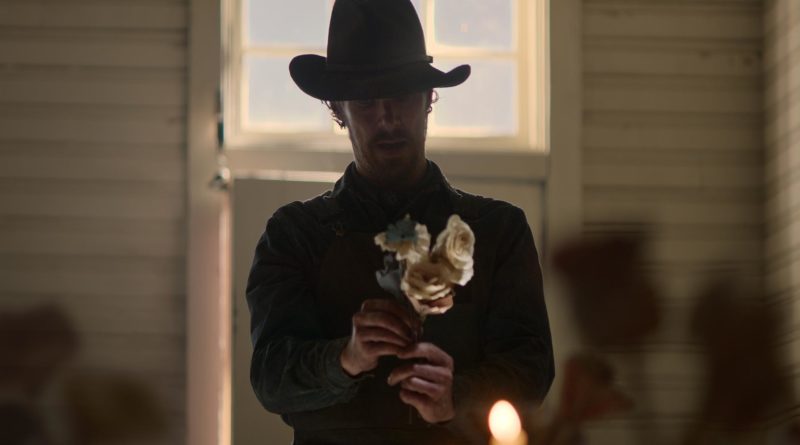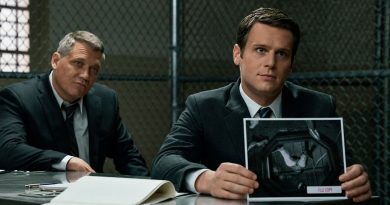‘The Power of the Dog’ Review: Excellence in Contradiction
Jane Campion‘s return to the screen has been long awaited by film nerds, and while a deal with Netflix and all that comes with it does not always yield good results, both the streaming service and the Kiwi filmmaker have something special on their hands. The Power of the Dog has received a massive heap of praise since its festival debut, and it is well deserved. The film is a western set at the tail end of the western era, following a group of people living on a cattle ranch in the 1920s.
While it is a western in setting and themes, to some degree, it feels more like an intimate drama, focusing on the intertwining emotional lives of its four main characters. The story follows Phil (Benedict Cumberbatch) and George (Jessie Plemmons) as brothers who own a cattle ranch. Phil is successful, hyper-masculine, and domineering in a way that is overly conspicuous, while George is quiet, humble, and sensitive. George falls for Rose (Kirsten Dunst), a widowed inn-owner and marries her, bringing her and her son Pete (Kodi Smit-McPhee) to live with them on the ranch. The ranch is the ultimate boys’ club, with Phil as the charismatic club president. He despises both femininity and high society that he sees Rose as the embodiment of, viewing them as an affront to his sense of self as a frontiersman, and bullies her viciously. He also bullies her son, who has a noticeable lisp and effeminate manner.
The story is fascinatingly written and told with a high degree of nuance and understatement. The conflicts between the central characters and their inner lives are brought out in subtle ways, through the careful observation of their interactions and personal dynamics. Rose feels out of place, and Phil’s bullying drives her to alcoholism. George, who felt impotent in front of his brother, feels doubly so now. Phil and George’s parents also show an obvious favoritism towards Phil, which weights heavily on the relationships between all three. Pete despises the ranch at first, feeling under attack due to his physical weakness and perceived homosexuality, and is stressed having to look out for his mother, but comes to enjoy aspects of the boys’ club atmosphere and the freedom it gives him to explore his darker impulses. The story unfolds in small yet unexpected ways, like the way the wind shifts and reshapes dunes of sand, as various moments, impressions, and conversations build to a climax that reshapes the world of the ranch in a moment that could be overlooked by the inattentive.
There are already plenty of articles explaining the movie and how its narrative works, but they are largely unnecessary. In a world of spoon-feeding media, The Power of the Dog is a breath of fresh air, putting to use Jane Campion’s skills as a director of the senses (a skill on full display in her signature work, The Piano) to tell a story that respects its audience, and trusts their intelligence and awareness to feel out what is happening. The film is a rare instance of being of easy to understand while never fully telling the audience what is going on.
While I wasn’t blown away by any of the film’s technical aspects: cinematography, sound, etc. each is utilized well and to great effect even without standing out. I quite enjoyed the stark, Roaring 20’s/western hybrid art direction though. In the end, all these technical aspects are used beautifully by Jane Campion and her team to tell a great story and enhance the inner lives of the characters with subtle, unassuming images, leaving the actors to flex their abilities and carry a great deal of weight in the movie, hopefully earning them some acting awards consideration.
The Power of the Dog is one of the best films of the year due to its masterful execution. It is a strange and fascinating beast that is full of contradictions and the subversion of expectations. It is a western that plays as a small-scale family drama. It is very impressionistic, yet very concrete. It is as allusive and complex as it is straight-forward and simple. In an industry full of compromise and half-measures, it is one of 2021’s most coherent and complete artistic statements.




